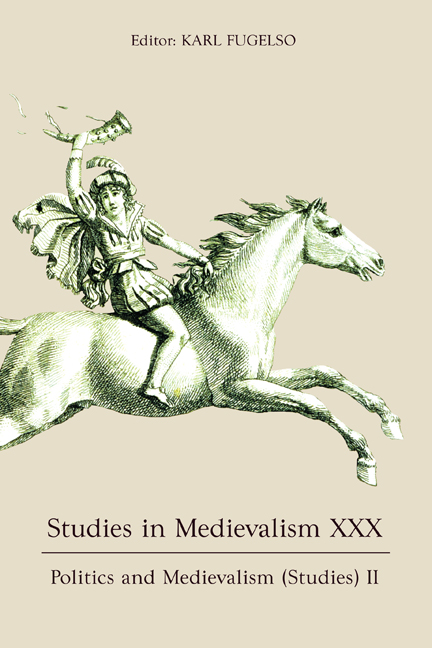Provenance and Reception of Iberian Chivalric Books in English from the Seventeenth to the Twentieth Century: The Case of Anthony Munday’s Palmendos (1589)
Published online by Cambridge University Press: 24 March 2021
Summary
The third entry for the term “provenance” in the Oxford English Dictionary offers a brief but illustrative definition: “The history of the ownership of a work of art or an antique, used as a guide to authenticity or quality.” All nouns in this entry deserve some commentary. “History” shows the narrative resulting from reconstructing the “ownership” and transfer of the item (“a work of art” or “an antique”). The item's provenance implies not just a mere technical description but an attempt to provide a plot in which the different agents involved are linked in a somewhat causal relationship. The “ownership” evoked here also helps identify the item as one over which its owner has “a legal right of possession.” Such legal right of the owner over the item possessed opens the possibility of the latter's subsequent change into a commodity or “a kind of thing produced for use or sale, an article of commerce, an object of trade.” There seems to be a direct link between such process of “commodification” and the item's qualification as “a work of art or an antique,” since its authenticity and quality depend precisely on the very ownership chain recorded in its provenance description.
Such technical approach to provenance, with a focus on ownership and transfer as markers of the economic and artistic value of an object, has been reconsidered over the past few years. Scholars such as Gail Feigenbaum, Inge Jackson Resist, David Pearson, and David Shaw, among others, have insisted on the use of provenance mostly as a means of learning about readership, book circulation, trade, and, in general, book culture. They agree on the status of books (not just the texts themselves) as historical documents and cultural artifacts that can provide information on the way readers and collectors use them.
This essay follows in the footsteps of the aforementioned scholars when describing the provenance of all extant copies of the first edition of Anthony Munday's Palmendos (1589). Reconstructing the history of each of those copies is an attempt to determine how and when Munday's book stopped being a matter of leisure or a book of conduct and became an object of scholarly inquiry and market speculation.
- Type
- Chapter
- Information
- Studies in Medievalism XXXPolitics and Medievalism (Studies) II, pp. 107 - 128Publisher: Boydell & BrewerPrint publication year: 2021



